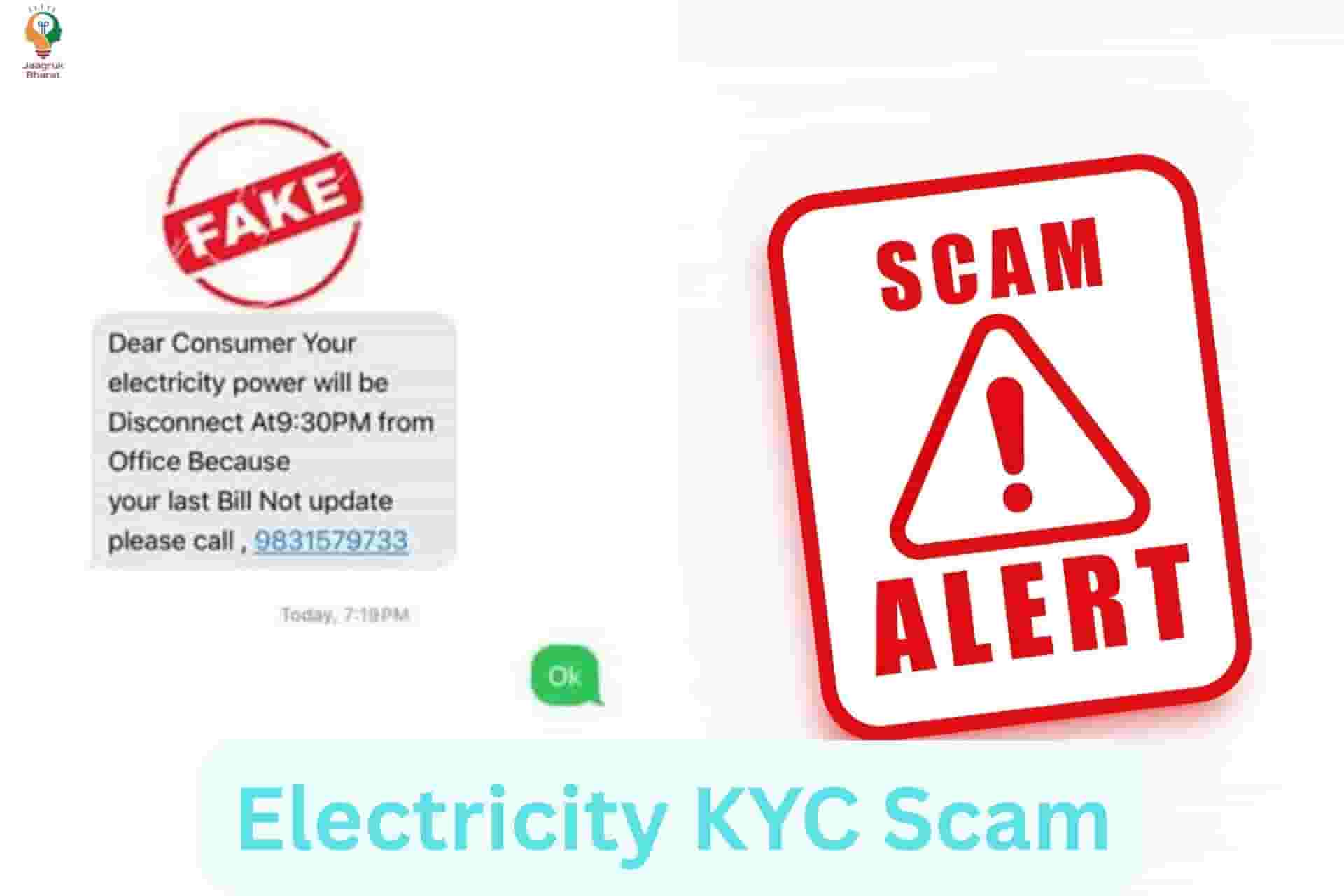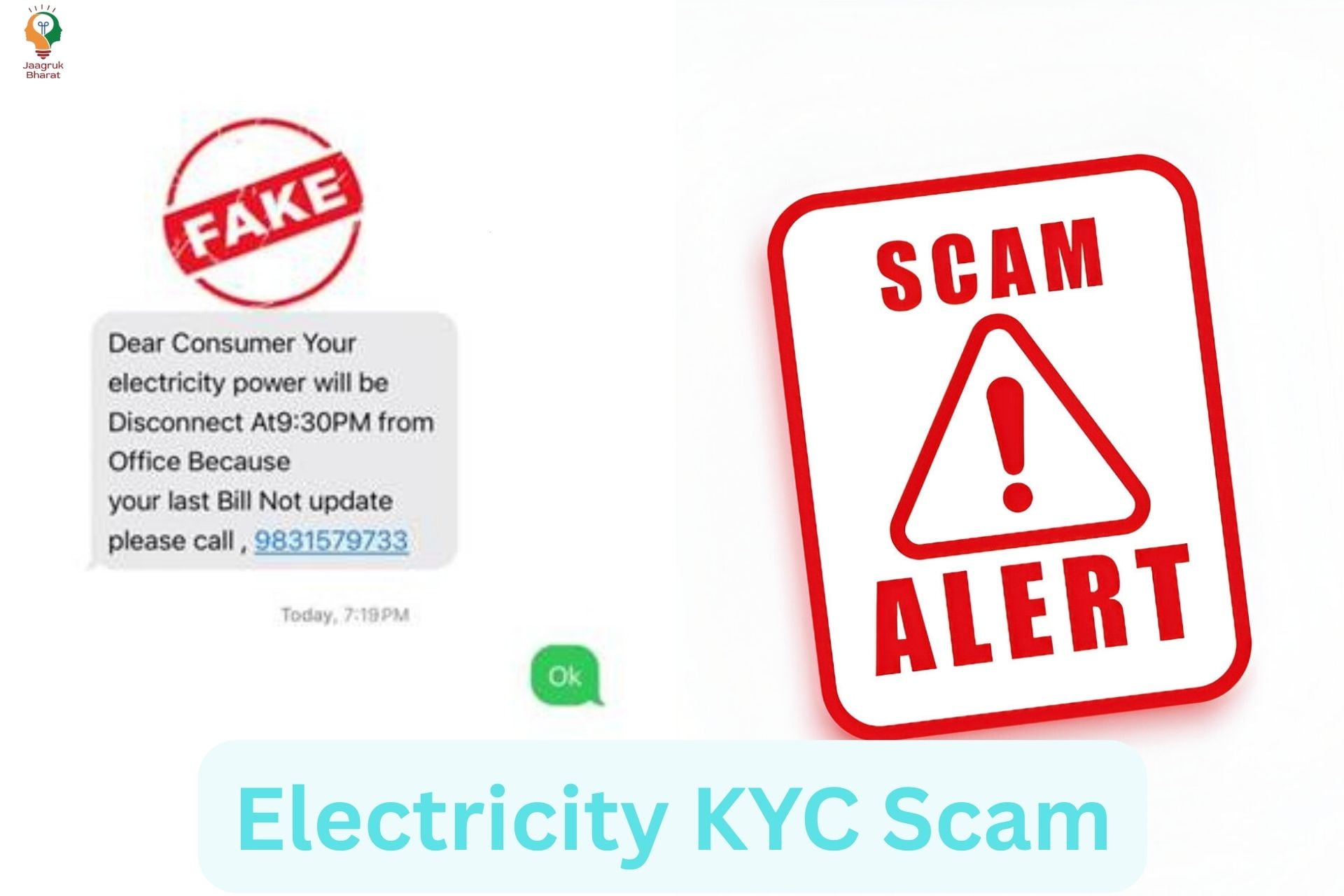Electricity KYC Scam: DoT To Block 392 Handsets Involved In Cybercrime, What You Need To Know
Updated: 10-11-2025 at 8:31 AM
2k


The Chakshu Portal, working for the detection of fraud and cybercrime, has been proactive in reporting suspected fraud and misuse by the citizens. In a recent turn of events, the Department of Telecommunications (DoT) has announced that it will be blocking 392 handsets across the nation due to complaints of KYC electricity fraud received through the Chakshu Portal.
Read the article to learn more about the electricity bill KYC scam, including answers to popular questions like ‘How to spot an electricity KYC scam?’ and preventive strategies.
Overview
The table below summarises some key details about the KYC electricity fraud that one should know.
| Scams concerning | Electricity bill KYC scam |
|---|---|
| General operations | Scammers defraud people in the name of KYC to steal their sensitive information |
| How to spot an electricity KYC scam? | Check the authenticity of the numbers you received the KYC message or call from, and never share your personal details online. |
| Popular ways of scamming | Electricity KYC scam messages on WhatsApp or fake electricity KYC call from DISCOM |
| What to do if you fell for electricity KYC fraud? | Report electricity KYC scam to authorities |
What Is The Electricity KYC Scam? Why Is It In The News?
Scamming and the conduct of fraud through WhatsApp and other modes of communication have become pretty common nowadays. To facilitate the reporting of such frauds and counter-striking against such fraudsters, the government launched the Chakshu portal, wherein citizens can report suspected fraudulent communications.
Some reported communications and complaints received revealed fraudsters and impostors posing as electricity service providers. Such fraudsters contacted the citizens and asked them to update their Know Your Customer (KYC) details to avoid disruption of electricity.
Messages containing requests for personal details and illicit and malicious links were circulated through WhatsApp and text messages. These messages targeted the customers for monetary gain.
Often, such messages also included corrupt APK files intended to manipulate and take control over the users’ devices.
What Is KYC?
KYC is short for ‘Know Your Customer. It is a process involving the verification of personal details of a consumer by the respective authority. It is an assessment of the suitability and reality of a consumer.
KYC is important as it prevents fraud, financial terrorism, money laundering, and other financial crimes. It strengthens the authenticity of the individual or person undergoing KYC.
What Happens During A KYC Scam?
Scams in the name of KYC involve defrauding people to obtain sensitive information. Fake calls and messages are made seeking personal details to authenticate and for KYC verification purposes. They obtain information such as PAN details, Aadhar details, bank details, and One-Time-Passwords (OTPs) to commit financial fraud.
What Actions Have Been Taken In Response To The Electricity KYC Scam By DoT?
The DoT cracked down on the handsets as well as the mobile connections that were found to be linked to the scam. An Artificial Intelligence (AI) enabled analysis conducted on the Chakshu Portal involving a similar category of complaints shed light on the ongoing Electricity Scam.
The DoT directed the verification of 31,740 mobile connections linked to the 392 handsets. Furthermore, in a bold move, the DoT announced that it would be blocking the identified 392 handsets. It has urged and directed all telecom service providers to block these handsets in an IMEI-based manner across India.
This action by the DoT, in light of increasing scams in the country, strengthens the belief of the citizens towards the commitment of government departments towards countering unlawful activities.
What To Do If You Fell For Electricity KYC Fraud?
The Chakshu facility was recently added to the preexisting Sanchar Saathi portal of the DoT. It is a reporting facility wherein citizens can report fraudulent communication received through various ways like electricity KYC scam messages on WhatsApp or fake electricity KYC call from DISCOM. The following steps can be taken to report such communication on the Chakshu facility if one falls victim to electricity KYC phishing:
Step 1: Visit the Sanchar Saathi portal on their official website here.
Step 2: Click on the Chakshu-Report Suspected Fraud Communication link on the homepage to report electricity KYC scam to authorities.
Step 3: Fill in the details and submit the report.
Conclusion
India ranked 10th in cybercrime, with most scams revolving around advance payment of fees, and India also saw a 52% jump in cases of reported cybercrime since 2021. The recent order by the DoT comes as an important step in countering cyber crimes and fraud like electricity KYC phishing. The facilitation by the department towards reporting such activities through the Sanchar Saathi as well as the Chakshu Portal eases the method of removing such unlawful elements from society.
Get the latest updates on government schemes and policies with Jaagruk Bharat. Join India's biggest Jaagruk Bharat community. Share your thoughts, questions, and favourite topics with us.
Visit Jaagruk Bharat’s Cyber Crime Complaint Service
At Jaagruk Bharat, we’re committed to helping you stay safe online. If you’ve been a victim or suspect fraud, visit our Cyber Crime Complaint Page to report the incident and seek guidance. Our team ensures your complaint is directed to the right authorities with clarity and speed.
Frequently Asked Questions
0
0
2k
0
0
2k Views
0
No comments available





Our Company
Home
About
T&C
Privacy Policy
Eula
Disclaimer Policy
Code of Ethics
Contact Us
Careers
Cancellation & Refund Policy
Categories
Women
Insurance
Finance
Tax
Travel
Transport & Infrastructure
Food
Entertainment
Communication
Government ID Cards
E-commerce
Traffic guidelines
Miscellaneous
Housing and Sanitation
Sports
Startup
Environment and Safety
Education
Agriculture
Social cause
Employment
Disclaimer: Jaagruk Bharat is a private organization offering support for documentation and government scheme access. We are not affiliated with any government body. Official services are available on respective government portals. Our goal is to make processes easier and more accessible for citizens.
All Copyrights are reserved by Jaagruk Bharat